China deploys COVID-19 vaccine to build influence, with US on sidelines
As Western nations focus on their own populations, China is riding in like a ‘knight in shining armour’, offering vaccines around the world.
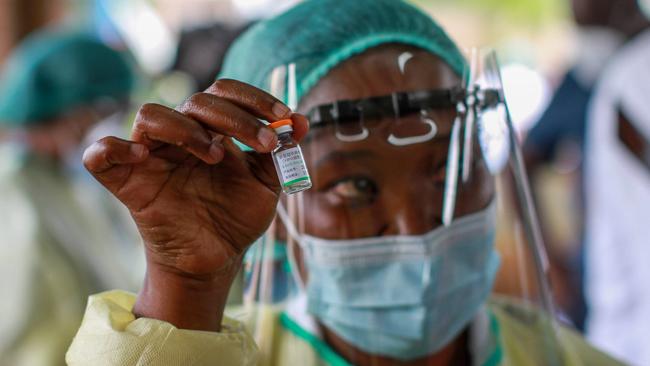
A cavernous new airport cargo terminal in Ethiopia’s capital, Addis Ababa, is the centre of a vast supply network China is assembling to speed delivery of its coronavirus vaccines — and deepen its influence across the developing world.
At one end is a soccer-field-sized freezer to store vials from Chinese state-controlled drug companies. At the other is a control room with a wall of computer monitors where Chinese and Ethiopian technicians will track temperatures of every batch.
This week, more than one million doses of China’s new COVID-19 inoculations will move through here, according to Ethiopian Airlines officials. Thousands of doses have already passed through, they and Ugandan officials said. More deliveries are set to arrive via a partnership between Chinese technology giant Alibaba Group Holding Ltd and Ethiopian Airlines, said officials at the state-owned airline.
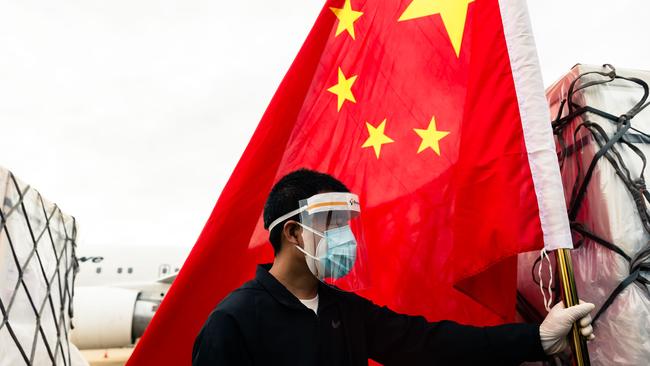
At stake is a potential soft-power prize: the goodwill of politicians and people across the developing world needing low-cost COVID-19 vaccines, and the prestige of being seen as a nation with the capacity to act as a guardian of global public health.
For months, China’s government, state enterprises and private companies have laid the groundwork for a vaccination push from Africa to the Middle East and Latin America. They’ve assembled a supply chain that would maintain temperature controls from the point of manufacturing through every step of distribution — and further the “Health Silk Road, ” as Beijing has called it.
“There’s a real win-win opportunity for China if they play it right,” said Ray Yip, a public-health expert and former China director of the Bill and Melinda Gates Foundation. As the US and Europe focus on their own populations, he said, China can ride in like a “knight in shining armour”.
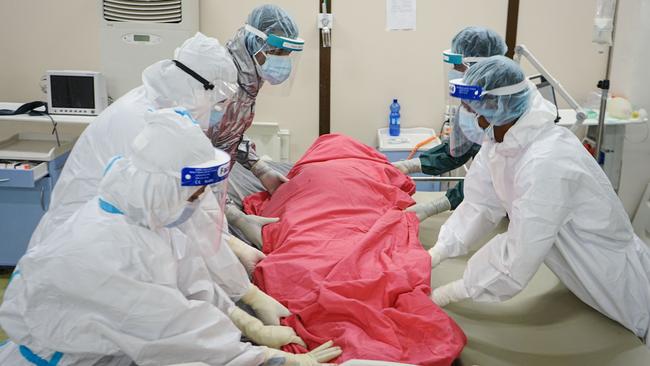
The Trump administration focused on accumulating vaccine supplies for domestic use and declined to participate in a multinational effort known as Covax, backed by the World Health Organisation, which aims to supply enough doses to inoculate 20 per cent of the developing world’s people by the end of 2021. US President Joe Biden’s team has announced $US4bn ($5bn) in funds to Covax, half of which will be released immediately.
Chinese leader Xi Jinping as early as June said Africa would receive Chinese vaccines. Chinese Foreign Minister Wang Yi, who took a five-nation tour of Africa last month, said in his New Year’s statement that vaccine distribution in Africa would be a priority for Beijing this year.
The Chinese Foreign Ministry said in a written statement that China is working to provide its vaccines to more than 60 countries and that more than 20 are already using them. In Africa, it said, China has provided shots to Equatorial Guinea, Zimbabwe and Sierra Leone and has plans to provide for an additional 16 countries on the continent.
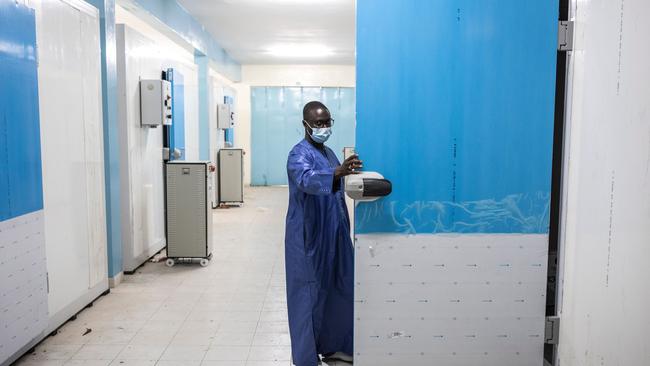
Africa includes some of toughest places to distribute vaccines, with many countries lacking proper infrastructure to receive and transport them. Two leading vaccines from Western pharmaceutical companies, which studies have shown to be more than 90 per cent effective, use a new technology known as mRNA, and have needed to be stored at extremely low temperatures. New research this month indicates that one of those, manufactured by Pfizer and BioNTech SE, could be stored in ordinary freezers instead of ultracold ones.
Three vaccines by Chinese companies Sinopharm, Sinovac Biotech and CanSino Biologics, based on more-traditional vaccine-making methods, can be stored using conventional refrigeration and thus have been easier to distribute in developing countries.
Clinical trials suggest the Chinese vaccines’ efficacy rates range from 50.4 per cent to 86 per cent — above the 50 per cent threshold the WHO deems necessary to protect populations. But Chinese vaccine makers have provided few details about how researchers calculated the efficacy rates. Many public-health experts have questions about the data for Chinese vaccines and warn against proceeding too quickly, including using the shots on elderly people.
Sinovac’s trial in Brazil was suspended but resumed last year after it was reported that one volunteer died from suicide. Since then, no serious health cases among people taking the vaccine have been reported.
A spokeswoman for CanSino declined to comment. Sinovac and Sinopharm didn’t respond to requests for comment. Sinopharm’s chairman told a Communist Party newspaper that no serious adverse effects have occurred in people taking its vaccine.
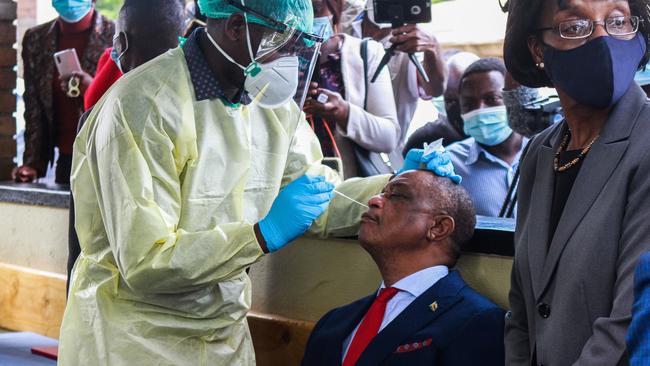
Vaccine diplomacy
Some policy analysts say China risks over-promising in an area where it has little experience. One vaccine mishap could have an outsize impact on China’s reputation. Beijing, meanwhile, has vaccinated only 3 per cent of its own 1.4 billion people, and analysts say Chinese vaccine makers face production limitations.
And vaccine diplomacy isn’t a sure-fire win for Beijing, which has cultivated a new breed of “wolf warrior” diplomats, who assert themselves on social media, taking on foes big and small. Their aggression has been seen in many capitals as undermining Beijing’s earlier attempts to win friends with donations of masks and other personal protective equipment.
Still, “for people receiving Chinese vaccines, it will change their impressions of China”, said Peng Nian, a researcher at the National Institute for South China Sea Studies, a government-backed think tank in China.
“That’s hard to achieve through big-scale construction projects or government agreements.” Early deliveries and commitments show the ties China has built around the world, including in places that its trillion-dollar Belt and Road infrastructure project and other investments from hydropower to mining have reached. Countries using Chinese vaccines have pledged their support of China’s global interests.
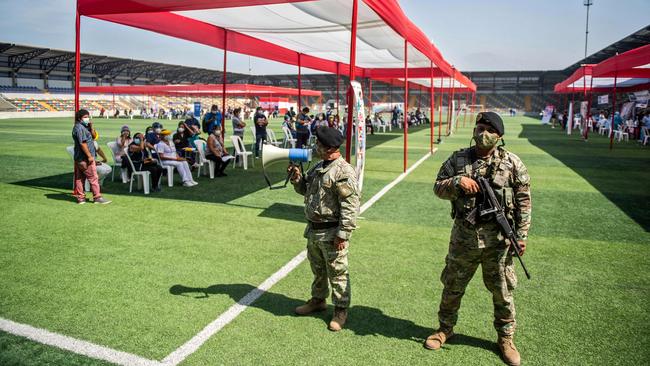
More than a dozen countries have approved use of Chinese vaccines and some officials in Europe have said they would consider them. Doses have been delivered to places such as Morocco, Turkey and Egypt. National leaders who have been publicly inoculated with Chinese shots range from Mohammed bin Rashid al Maktoum, the ruler of Dubai, to Indonesian President Joko Widodo and Turkish President Recep Tayyip Erdogan.
Chinese vaccine makers have signed contracts to supply more than 500 million doses to other countries, according to research firm Gavekal Dragonomics. Indonesia has secured the most from China, signing up for 125 million Sinovac doses, according to the firm.
The US has ordered 600 million doses of authorised vaccines from Pfizer and Moderna and has additional contracts for other vaccines if they are authorised.
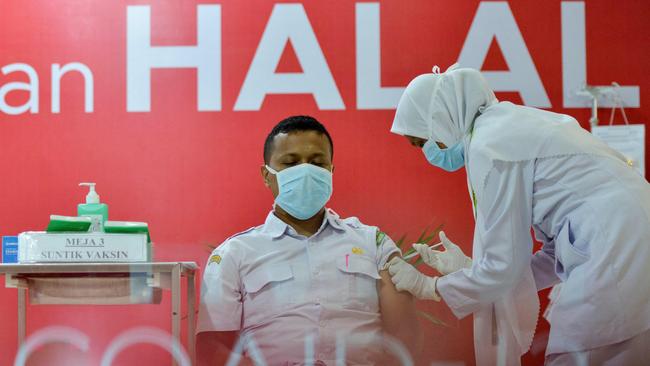
The Seychelles on January 7 began vaccinating its residents with the 50,000 Sinopharm doses donated from the United Arab Emirates, the health ministry said, enough doses to vaccinate half the population of the strategic Indian Ocean nation, where Beijing has for years sought to derail Indian efforts to establish a military outpost. On February 15, Zimbabwe received 200,000 doses of the Sinopharm vaccine, a donation from China, according to a tweet by the nation’s health ministry. Senegal received 200,000 doses earlier in February, the country’s health ministry said in an online statement.
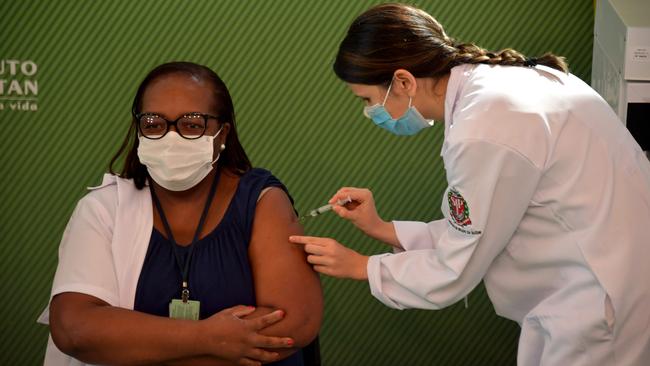
Cold chain
One of the first destinations for Chinese vaccines moving through Addis Ababa’s cargo terminal was Uganda, according to Ethiopian and Ugandan officials. Some 70 metric tons of Sinovac and Sinopharm vaccines entered Entebbe airport in the final week of December and were issued to workers at an industrial park north of Kampala and some senior Ugandan officials, according to government officials, doctors and a memo circulated within Uganda’s health ministry reviewed by The Wall Street Journal.
At the Kampala compound of SinoAfrica Medicines & Health, a unit of Chinese state-owned medical giant Northern International Group, private guards with temperature scanners and armed police officers keep watch over a recently refurbished warehouse.
Beyond its 3m fence, SinoAfrica has installed temperature-control facilities to store Chinese vaccines to distribute in Uganda and across East Africa. Delivery trucks fitted with refrigerators stand ready. In the coming days, they will start delivering vaccine doses within and outside the capital.
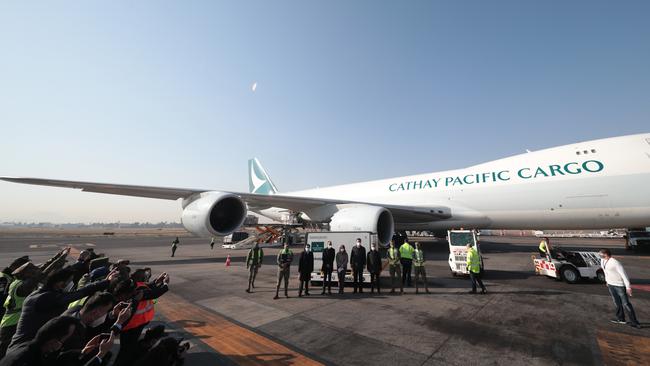
In China’s cold-chain infrastructure, Ethiopia is a linchpin. In December, Chinese and Ethiopian officials broke ground on the African Centres for Disease Control and Prevention in Addis Ababa, a 90,000 sq m headquarters to be largely financed by China and built by Chinese construction companies.
China’s cold chain through Ethiopia has a template tested in the pandemic’s earlier days. Following an agreement last year between Ethiopian Prime Minister Abiy Ahmed and Alibaba founder Jack Ma, Ethiopian Airlines distributed more than 14 million pieces of Chinese-made surgical masks, gloves and other protective equipment donated by the Jack Ma Foundation and Alibaba Foundation to countries in Africa.
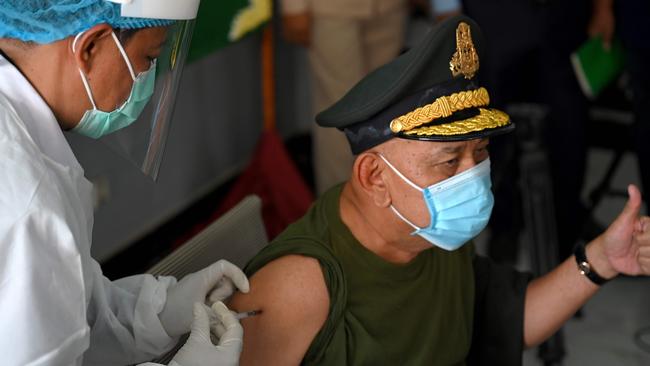
Ethiopian Airlines planes spearheaded the effort, working with Alibaba’s logistics arm to deliver an initial batch of Chinese equipment to 52 of Africa’s 54 countries in just seven days, according to Ethiopian Airlines.
In cash-strapped countries such as Zimbabwe, Nigeria and Sudan, where medics on the front line often go months without pay, Mr Ma’s donations were met with cheers. Senior African cabinet ministers lined up on the tarmac to watch protective gear being unloaded. Chinese state television released a film cutting between the first Ethiopian Airlines jet taking off from the city of Guangzhou and control tower staff there.
“Thank you, China,” says the pilot. The controller responds: “Long live the China-Africa friendship.”
The Wall Street Journal
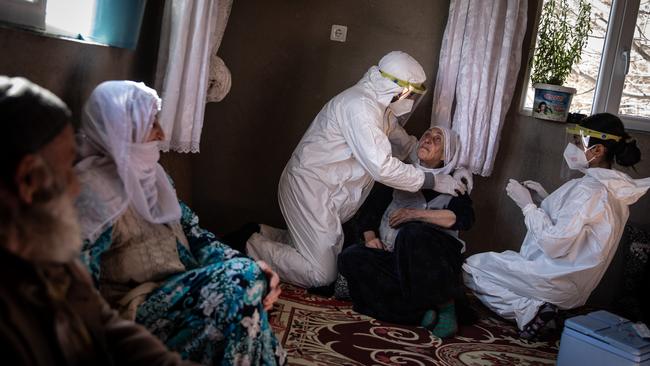



To join the conversation, please log in. Don't have an account? Register
Join the conversation, you are commenting as Logout